2023
February
SEED project meeting in Kenya: Great progress in developing a concept for an Energy-Hub for informal settlements
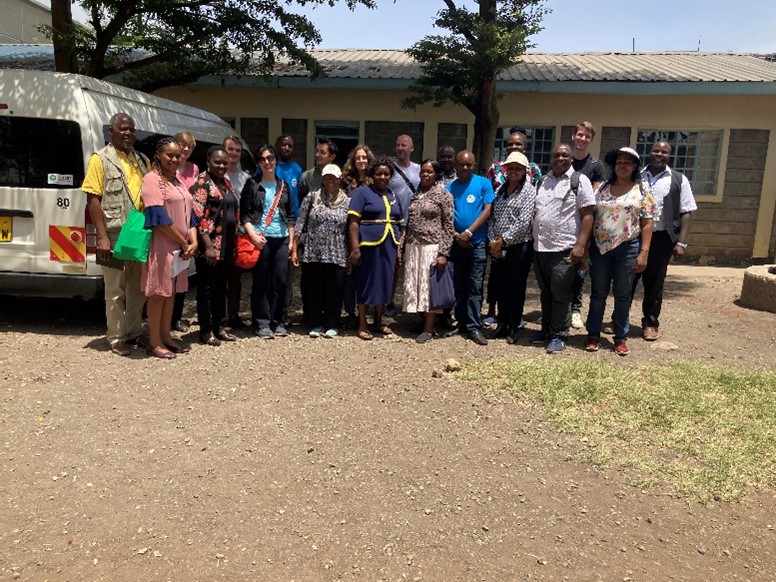
The second SEED project meeting was held in Nairobi, Kenya, during the week of 13-17th February. During the week, the team from the Institute of new Energy Systems (InES) met with the project partners from the University of Bayreuth (UBT), the Universidade Eduaordo Mondlane (UEM) and Phaesun GmbH. The meeting was hosted by the local project partner, the Technical University of Kenya (TU-K).
The week focused on further developing the concept for the so-called Energy-Hub, meeting with Kenyan stakeholders and visiting the Kingstone informal settlement in Nairobi’s Mukuru district. It is evident that the joint work of the past year is beginning to yield results. With regard to the Energy-Hub, important issues of governance, community involvement and benefits, as well as site selection, were discussed and taken forward. We were supported by the Kenya Power and Lighting Company (KPLC) and Muungano, a non-governmental organisation (NGO). Muungano has been working for years to improve infrastructure development in informal settlements in Kenya.
The visit to the Kingstone informal settlement in Mukuru District was particularly informative. We were first welcomed by the NGO Mukuru Slums Developments Projects (MSDP), who gave the SEED consortium a comprehensive insight into their work on the ground and the various projects. Discussions with MSDP followed on from the previous days on sustainability, good management and ownership, and focused on their experience of implementing projects in Kingstone.
The subsequent visit to the informal settlement, led by the local Community Health Workers (CHWs), allowed us to experience the reality of the local people’s lives first hand. In the subsequent discussions with the CHWs, questions about the daily lives of the residents were discussed, as well as the requirements for a possible concept for the Energy-Hub.
With the impressions gained during the week, the SEED project team is now motivated to start the final year of the project to further develop the concept of the Energy-Hub and adapt it to the realities of life in the informal settlements.
2023
February
SEED-Dissemination of
first results: A successful contribution at the 6th RET.Con 2023
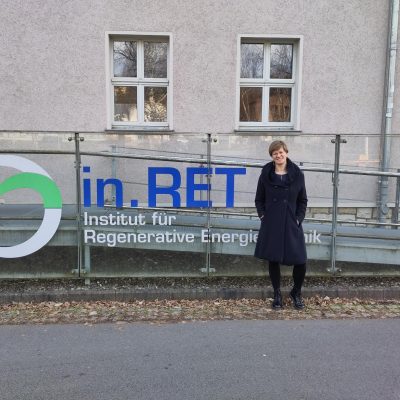
At the beginning of February 2023, the opportunity was taken to present the initial results of the SEED project at a conference for the first time. The chosen conference was „RET.Con“, already known to InES, organized by the Institute for Regenerative Energy Technology (in.RET) at the Nordhausen University of Applied Sciences. For admission, the submission of an abstract and a subsequent paper was required, the latter of which can be read here. The conference covered diverse topics in the field of renewable energy and invited interesting discussions. It was also possible to get well-founded feedback on the presentation given. The event was a complete success!
2022
November – December
SEED - Research stay: An insightful look into the reality of life for the residents of an informal settlement in Nairobi, Kenya
SEED - Research stay: An insightful look into the reality of life for the residents of an informal settlement in Nairobi, Kenya
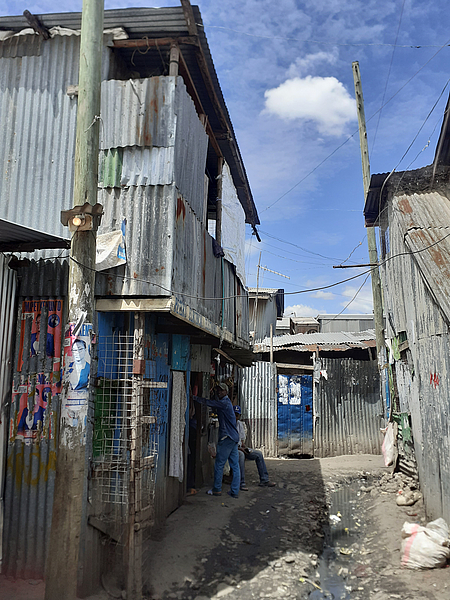
As part of the SEED project, a two-week field visit to Kenya took place in December 2022: Besides Mozambique, Kenya is the second country in which the concept of the Energy-Hub is being planned together with the SEED project partners. It was not only possible to escape the freezing temperatures of Germany, but also to make considerable project progress: In addition to the meeting with the project partners from the Technical University Kenya (TU-K), the visit to the informal settlement and research region Kingstone in the urban area and slum of Mukuru was particularly on the agenda. The focus of the stay was on visiting the potential site for the Energy-Hub, analysing the existing local infrastructure, measuring electronic devices from companies in the neighbourhood and establishing contacts with various relevant stakeholders. The visit to the settlement was accompanied by a local guide who assisted in translating Kiswahili or a language of the respective ethnic groups into English. The first contact with small businesses was also made much easier thanks to the guide.
With the help of a current clamp, measurements of various electrical devices of local companies could be taken. The purpose of this is to get a feel for the types of businesses on site, the number of devices in operation and an overview of the resulting electricity demand of each business. Once the services offered in the Energy-Hub are determined after future, further research, the sizing will be simplified by the data collected during this visit. Businesses analysed included butchers, milk, fish and vegetable sellers, grain millers, hairdressing and laundry salons, as well as electronics- grocery and sewing shops.
Electricity supply in Kingstone is organised by informal energy suppliers. The national energy provider KPLC has withdrawn from the region by dismantling all transformers in order to counteract illegal structures that have already developed and to minimise economic losses that have arisen as a result. Residents of Kingstone now do not pay for the energy they use each month, but a fixed amount depending on the capacity of the connected power line. For the residents, this results in both high prices and an unreliable power supply. In particular, blackouts often occur in the evening hours, as a relatively large amount of electricity is needed during this time. As shopping and errands are often done in the evening hours after a long working day, businesses in particular suffer from lost sales due to the evening power cuts: hairdressing salons with electric razors cannot serve customers, sewing shops and laundries cannot do their work.
The lack of street lighting and the resulting lack of security after sunset in Kingstone was also identified as another major challenge. An Energy-Hub can provide light, and therefore safety, to residents during dark hours with the help of portable, solar-based lighting. Selected businesses that support as much of the local population as possible in their daily lives can also benefit from a stable electricity supply through the Energy-Hub.
Contact was successfully established with various stakeholders such as the Muungano Alliance. The organisation supports the process of Mukuru Slum Upgrading, i.e., the upgrading of the region through infrastructure development and restructuring. Especially in the field of energy infrastructure optimisation, a cooperation between the organisation and SEED is seen as profitable for all parties. The cooperation with the NGO Mukuru Slums Development Project (MSDP), which provides the potential location for the energy hub, was also deepened in various meetings.
The findings of the research visit will be discussed with all project partners at the project meeting in Nairobi in February 2023. The future cooperation with stakeholders will also be consolidated at the project meeting.
2022
June – July
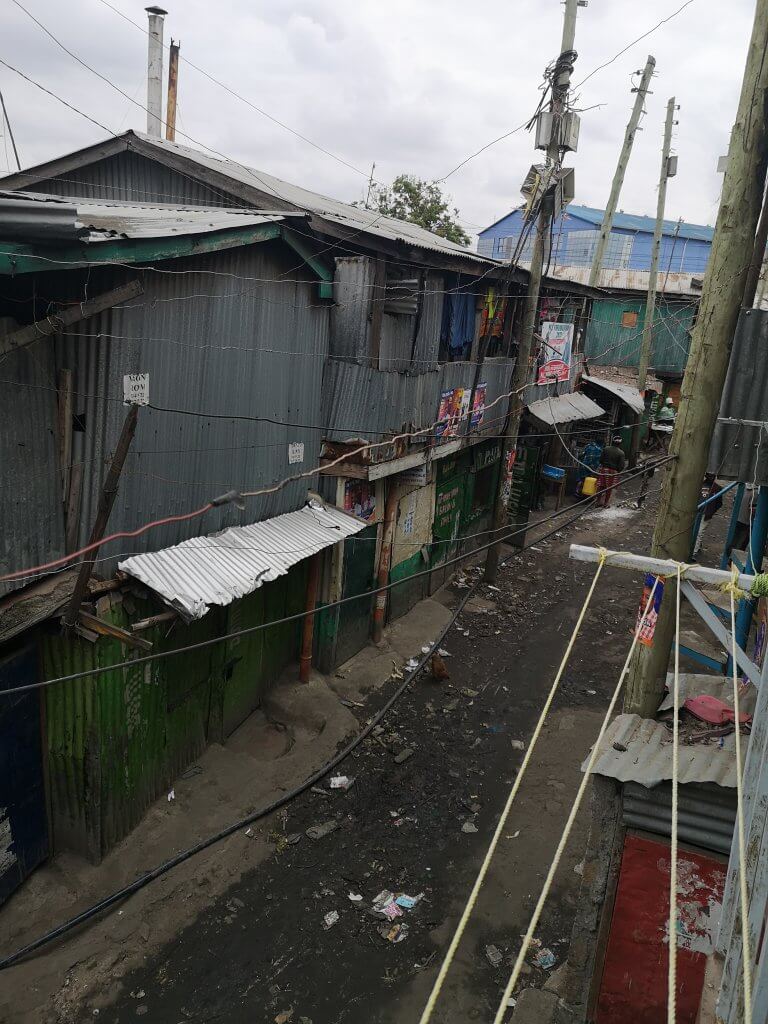
Field visit in Nairobi to improve the understanding of energy practices and needs of the local population
Mira Rodrian (UBT team) dedicates her master’s thesis to the SEED project and investigates how people use energy in an informal settlement in Nairobi, Kenya.
For this purpose, she has spent several weeks in Nairobi this summer and together with the local partners she immersed herself in the socio-geographical perspective in Work Package 2 Informal Settlements Communities to better understand the local social structures in the chosen informal settlement and to identify relevant stakeholders. Her acquired knowledge and findings will be very crucial for the preparation of subsequent Participatory Action Workshops which are planned for 2022 as well.
If you want to learn more about Mira’s experiences, please read here.
2022
May 16 – 20
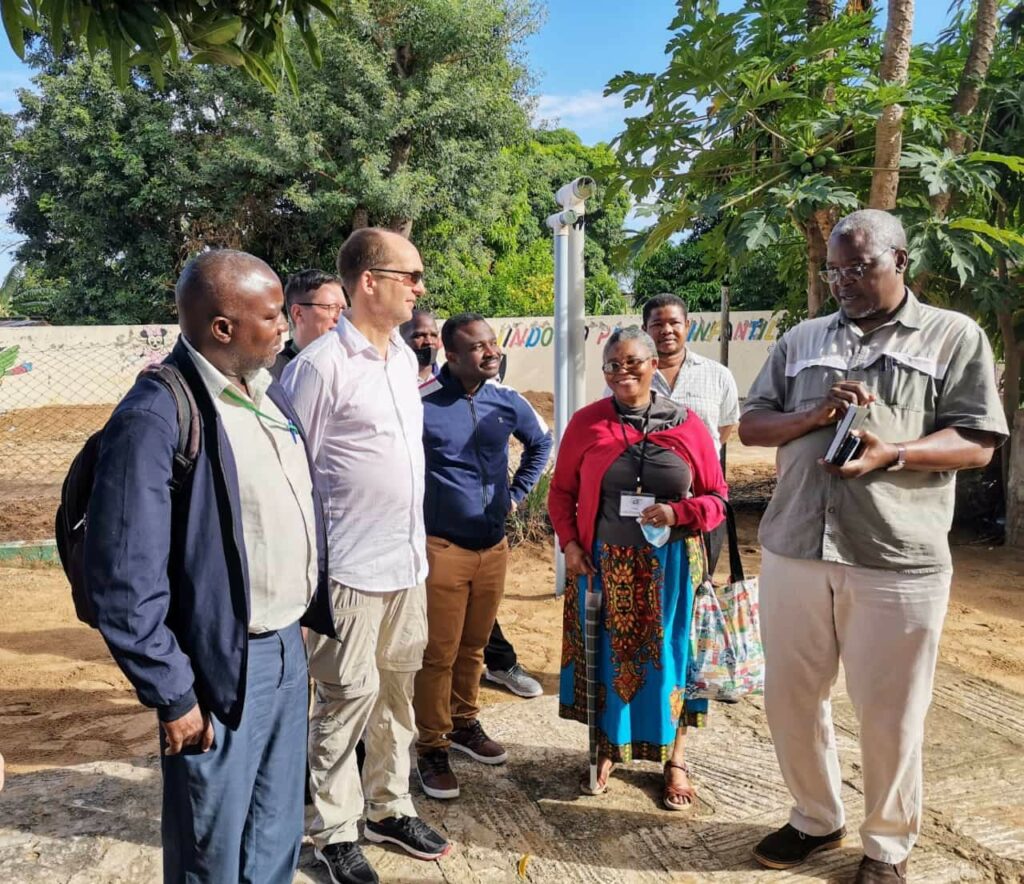
SEED project meeting in Mozambique: One step further on the way to innovative concept development for informal settlements
The first on-site SEED project meeting took place from May 16th until 20th in Maputo, Mozambique. During the week, representatives of the project partners from the Universität Bayreuth (UBT), Technical University of Kenya (TU-K) and the Institute of new Energy Systems (InES) met on the premises of the local partner university Universidade Eduaordo Mondlane (UEM). Other team members were joining digitally, including representatives of the industry partner Phaesun GmbH.
The focus of the week was the exchange with local stakeholders, including the national electricity provider Electricidade de Moçambique (EDM) and representatives from the Maputo city administration as well as the national agency Fundo de Energia (FUNAE), which focuses particularly on the electrification of the rural population. Involving the local institutions in the project is the basis for its success, as SEED is intended to optimally support and expand the existing energy infrastructure. Consequently, the aim is to develop a concept that supports decision-makers in the Global South in strengthening the resilience of cities.
To ensure that the innovative technological solution is oriented towards the needs of the population in Mozambique, the interdisciplinary SEED team visited several settlements in Maputo. The analysis of the local, socio-economic conditions is the basis for the subsequent concept development.
The energy concept developed in the SEED project is intended to improve the living conditions of residents of informal settlements in urban regions in the long-term. The aim is to provide renewable energy sources via a so-called Energy-Hub, which can be used by both households and businesses. The local teams in Kenya and Mozambique conducted initial surveys to determine the type and quantity of energy desired by the potential users of such an energy hub. In Mozambique, for example, 387 households and 85 businesses were successfully questioned about their energy needs. This socio-economic and energy-related data is currently being analysed. The first results of the survey were discussed in plenary sessions with all project partners during the meeting in Mozambique, mainly to define the next steps in the SEED project.
In addition, the project meeting also served to get to know each other and exchange ideas, as this was the first face-to-face meeting with almost all partners.
2021
December 02 & 03
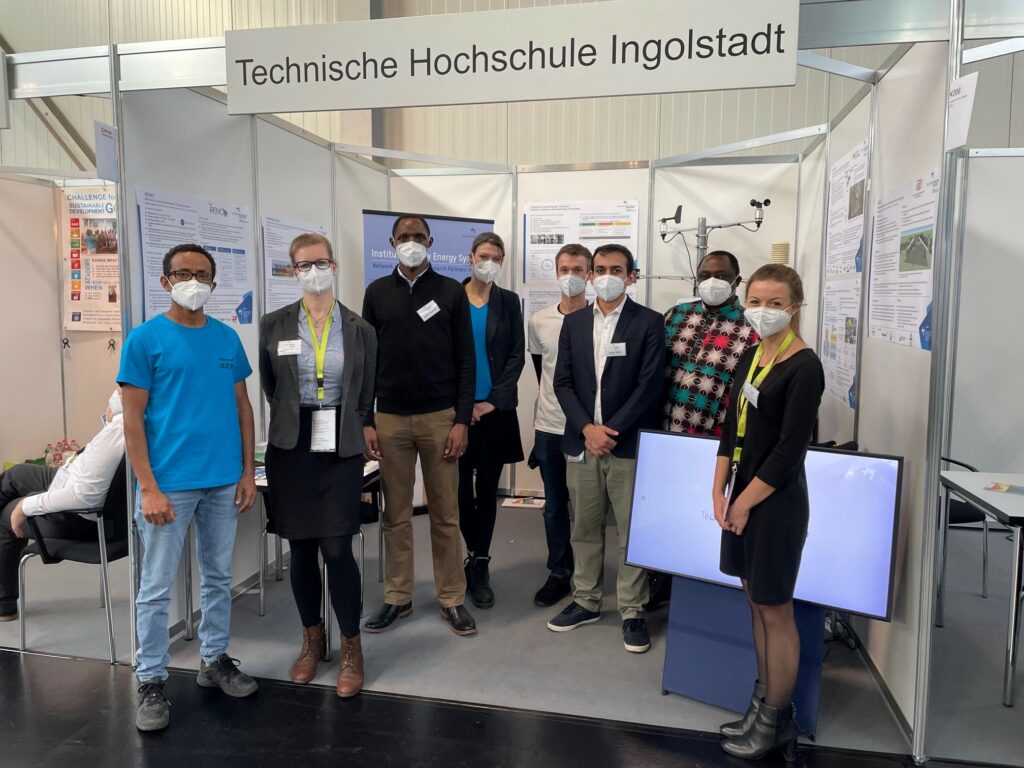
Participation of the SEED project team at this year’s OFF-GRID Expo + Conference in Augsburg
In the beginning of December, the international off-grid community met at the OFF-GRID Expo + Conference both on-site in Augsburg and virtually. More than 50 exhibitors presented their off-grid solutions and innovations at the fair. Among these exhibitors, the Institute of new Energy Systems (InES) presented both the Technische Hochschule Ingolstadt as well as its international activities at a booth, including the SEED project.
Besides the project members from InES, team members from the Kenyan partner university Technical University of Kenya (TU-K), Prof. Alex Muumbo and Mr. Joshua Ngetuny, were introducing the SEED project and its goals to the visitors at the InES booth. Phaesun GmbH was also participating at the event presenting its products.
The SEED team used the two days in Augsburg to increase the visibility of the joint project and to also identify possible productive use cases and technology solutions that could possibly be integrated in the concept of the Energy-Hub. Although there were fewer guests than in pre-Corona times, new contacts were made and numerous impulses for the further implementation of the project were gathered. As the feedback and interest in the SEED project was great among the booth visitors, all SEED team members agreed that participating at the fair was very successful for the project. Having the exhibition and conference also take place in Augsburg in presence was possible due to the very strict hygiene and corona test guidelines.
2021
September 28
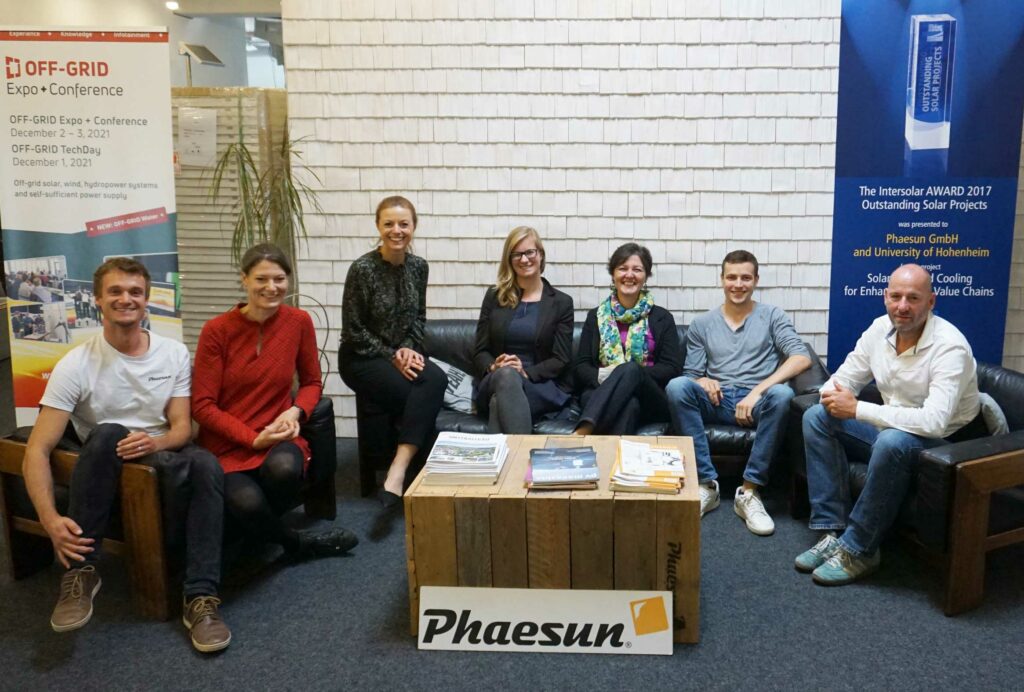
SEED research project: Potential locations determined for Energy-Hub for sustainable energy supply to informal settlements
The SEED partners, including the teams of the Geographical Institute of the Universität Bayreuth (UBT), the industrial partner Phaesun GmbH as well as InES, finally had the opportunity to get to know each other personally – in compliance with applicable hygiene regulations – at the premises of Phaesun GmbH in Memmingen!
The substantive work took place during a subsequent hybrid meeting in which the partners from the Technical University of Kenya (TU-K) and the Eduardo Mondlane University (UEM) of Mozambique joined online. The team discussed potential locations for an Energy-Hub in informal settlements in Nairobi, Kenya and Maputo, Mozambique. Together, the interdisciplinary team determined a location in Kenya and came much closer to deciding on Mozambique. This determination is the cornerstone for the further project work: the next steps focus in particular on data collection on site, which will be carried out in close cooperation with all project partners. Both a quantitative and qualitative study on energy-related and socio-cultural behaviours of the local population in the selected informal settlements will be designed and subsequently carried out. With the help of this data, the needs of the potential users of the Energy-Hub can be analysed in order to adapt the design of the Energy-Hub accordingly.
In addition to discussing organisational issues within the SEED project, such as the coordination of future research visits to the partner countries Kenya and Mozambique for data collection, the industrial partner Phaesun GmbH presented other projects and products to the other partners during a tour of the premises, which could also be of interest for the joint SEED project.
SEED is a project funded by the Federal Ministry for Research and Development and runs until March 2024.
2021
June 11
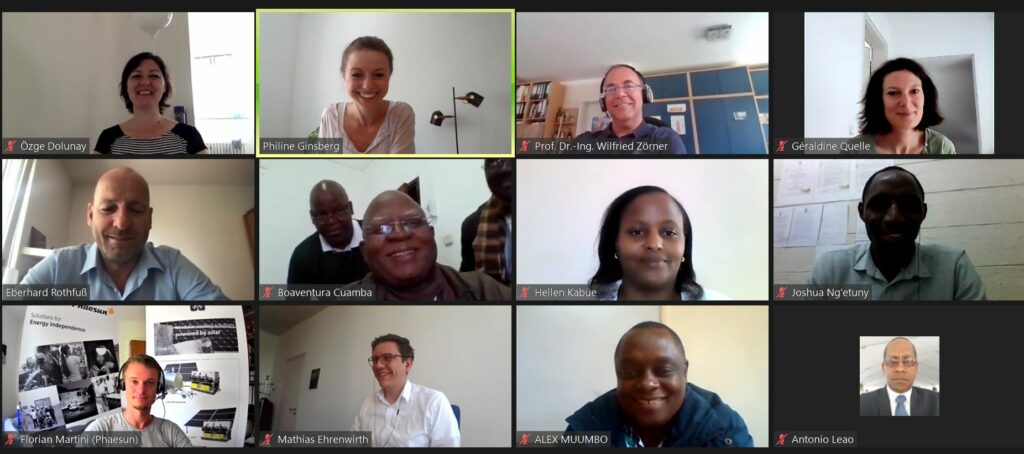
At the beginning of June, the project partners of the joint project „Sustainable Energy Education Districts for Informal Settlements“ (SEED) met for their virtual Kick-off meeting. The teams from the Institute of Geography at the University of Bayreuth (UBT), the Technical University of Kenya (TU-K), the Eduardo Mondlane University (UEM) in Mozambique and the industrial partner Phaesun GmbH participated. After a first introduction, partners discussed how they will tackle the planned work packages. The possible implications of the global Corona pandemic were also discussed. During the next meeting, the partners will take a closer look at informal settlements and decide which are to be specifically investigated within the framework of the project in the partner countries Mozambique and Kenya. The joint project is funded by the BMBF and will run until the end of March 2024.